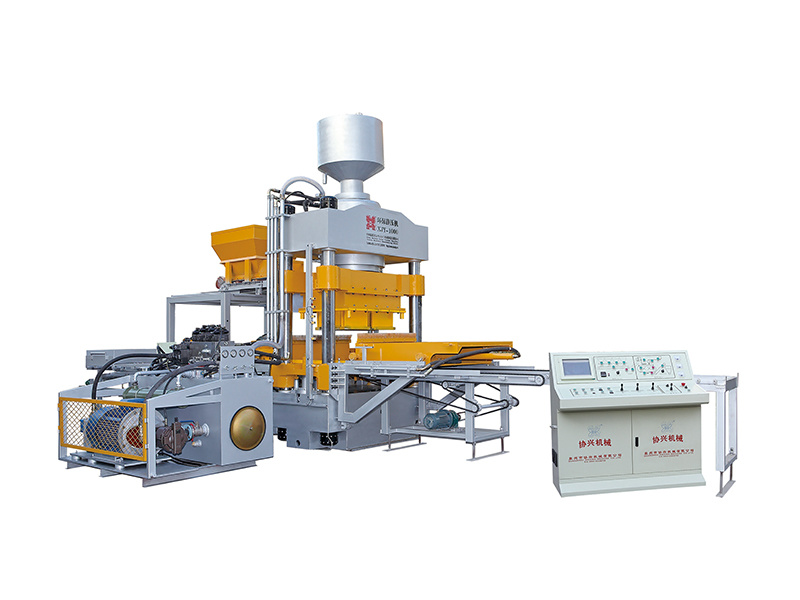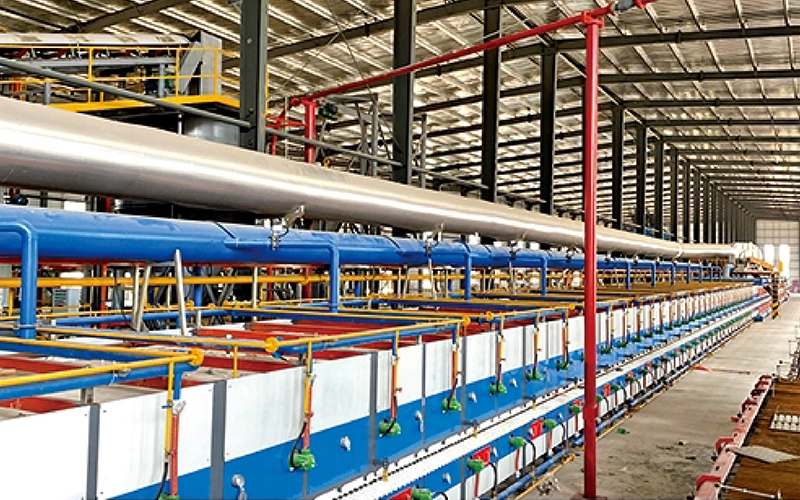The Future of Construction: Innovations in Concrete Block Making Technology
2025-09-05
The Future of Construction: Innovations in Concrete Block Making Technology
As the construction industry continues to evolve, innovations in concrete block making technology are paving the way for a more efficient, sustainable, and durable future. Concrete blocks have long been a staple in building construction, providing structural integrity and versatility. However, the emergence of new technologies and methods is transforming how these essential building materials are produced and utilized. In this article, we delve into the latest advancements in concrete block making, exploring their implications for the construction sector.
Table of Contents
- 1. Understanding Concrete Block Making Technology
- 2. Historical Perspective on Concrete Block Production
- 3. Innovations Enhancing Concrete Block Manufacturing
- 4. Automation and Robotics in Concrete Block Production
- 5. Sustainable Practices in Concrete Block Making
- 6. The Role of Smart Technology in Construction
- 7. Case Studies: Successful Implementation of New Technologies
- 8. Future Trends in Concrete Block Making
- FAQs
1. Understanding Concrete Block Making Technology
Concrete block making technology refers to the processes and methods used to create concrete blocks that serve as fundamental building units in construction. These blocks can be made from various materials, including cement, aggregates, and additives, depending on the desired properties and strength. The technology has evolved significantly, integrating advanced machinery and innovative techniques to enhance productivity and quality.
1.1 What Are Concrete Blocks?
Concrete blocks are large, rectangular units made from a mixture of cement, water, and aggregates. They are used in various construction applications, including walls, foundations, and pavements. Their size and strength offer advantages over traditional bricks, making them a preferred choice for many builders.
1.2 Importance of Concrete Blocks in Construction
Concrete blocks provide several benefits, including:
- Strength and Durability: High compressive strength ensures long-lasting structures.
- Thermal Insulation: Concrete blocks can offer better temperature regulation in buildings.
- Cost-Effectiveness: Their large size allows for quicker installation and reduced labor costs.
- Fire Resistance: Concrete blocks are non-combustible, contributing to fire safety.
2. Historical Perspective on Concrete Block Production
Concrete blocks have a rich history dating back to the early 1900s. Initially, production methods were labor-intensive, relying on manual processes. As demand for quicker and more efficient construction methods grew, mechanization began to play a significant role in block production. The introduction of block-making machines marked a turning point, allowing for consistent quality and increased output.
2.1 The Evolution of Block-Making Machines
Early block-making machines were simplistic and often produced uneven blocks. With time, advancements in engineering led to the development of hydraulic and automated machines that improved accuracy and consistency. Today, machines can produce thousands of blocks per day with minimal human intervention.
2.2 Key Milestones in Concrete Block Manufacturing
Major developments in concrete block production include the introduction of:
- Interlocking blocks: Designed for easier assembly and enhanced structural stability.
- Lightweight concrete blocks: Improving insulation properties and reducing overall building weight.
- High-performance concrete formulations: Increasing the durability and lifespan of blocks.
3. Innovations Enhancing Concrete Block Manufacturing
Recent innovations in concrete block manufacturing have revolutionized production processes, enabling manufacturers to meet the demands of modern construction projects. These advancements focus on improving efficiency, reducing waste, and enhancing the quality of concrete blocks.
3.1 Advanced Material Technologies
The development of new materials has significantly impacted concrete block production. Incorporating additives such as fly ash, slag, and polymer fibers not only enhances the mechanical properties of blocks but also contributes to sustainability by recycling industrial by-products.
3.2 3D Printing in Concrete Block Production
3D printing technology is making waves in construction, allowing for the rapid production of complex block shapes that were previously difficult to achieve. This technology reduces material waste and enables customization, providing architects with greater design flexibility.
4. Automation and Robotics in Concrete Block Production
The integration of automation and robotics in concrete block making is transforming the industry by enhancing precision and reducing labor costs. Automated systems can monitor and control critical parameters during production, ensuring consistent quality.
4.1 Benefits of Automation
- Increased Output: Automation allows for 24/7 production with minimal downtime.
- Higher Precision: Automated systems minimize human error, resulting in uniform blocks.
- Labor Savings: Reduced dependency on manual labor lowers operational costs.
4.2 Robotic Systems in Block Handling
Robotic systems are increasingly being used for handling and transporting blocks within manufacturing facilities. These systems can efficiently move heavy blocks, reducing the risk of injury to workers and improving overall workflow.
5. Sustainable Practices in Concrete Block Making
As sustainability becomes a focal point in construction, innovations in concrete block making are aligning with eco-friendly practices. Manufacturers are seeking ways to reduce their carbon footprint and promote the use of sustainable materials.
5.1 Recycling in Block Production
Using recycled materials, such as crushed concrete and reclaimed aggregates, not only conserves natural resources but also reduces waste. This practice is becoming increasingly popular among environmentally conscious manufacturers.
5.2 Energy-Efficient Production Techniques
Implementing energy-efficient technologies and practices throughout the manufacturing process can significantly reduce energy consumption. This includes optimizing curing methods and utilizing renewable energy sources in production facilities.
6. The Role of Smart Technology in Construction
The rise of smart technology is impacting various aspects of construction, including concrete block making. IoT (Internet of Things) devices, sensors, and data analytics are enabling manufacturers to monitor production processes in real-time, leading to improved efficiency and quality control.
6.1 Smart Manufacturing Solutions
Smart manufacturing solutions allow manufacturers to gather valuable data on production efficiency, equipment performance, and material quality. This data can be analyzed to identify areas for improvement and drive innovations in production processes.
6.2 Predictive Maintenance and Quality Control
By integrating predictive maintenance technologies, manufacturers can proactively address equipment issues before they lead to production delays. Additionally, smart quality control systems can ensure that every block produced meets rigorous quality standards.
7. Case Studies: Successful Implementation of New Technologies
Various companies have successfully adopted innovative technologies in their concrete block production processes, showcasing the benefits of modern advancements.
7.1 Company A: Revolutionizing Block Production with Automation
Company A implemented automated block-making machines that increased their production capacity by 50%. They also integrated data analytics to optimize their supply chain management, resulting in reduced lead times and enhanced customer satisfaction.
7.2 Company B: Sustainability at the Core
Company B focused on sustainable practices by incorporating recycled materials into their concrete mixture. This initiative not only reduced their environmental impact but also appealed to eco-conscious clients, leading to increased market demand.
8. Future Trends in Concrete Block Making
The future of concrete block making is poised for further transformation as technologies continue to advance and the demand for sustainable construction practices grows. Key trends to watch include:
8.1 Increased Use of Advanced Materials
The ongoing development of advanced materials will likely lead to even stronger, lighter, and more sustainable concrete blocks that meet the stringent demands of modern architecture.
8.2 Greater Integration of AI and Machine Learning
Artificial intelligence and machine learning will play a significant role in optimizing production processes, predicting market trends, and improving overall efficiency in concrete block manufacturing.
8.3 Expansion of Modular Construction
As modular construction gains traction, concrete blocks will likely be adapted for use in prefabricated building systems, improving construction speed and efficiency.
FAQs
1. What are the benefits of concrete blocks over traditional bricks?
Concrete blocks offer greater strength, thermal insulation, fire resistance, and cost-effectiveness compared to traditional bricks, making them a preferred choice in modern construction.
2. How does automation impact concrete block production?
Automation increases production output, enhances precision, and reduces labor costs, allowing manufacturers to produce higher-quality blocks more efficiently.
3. What role does sustainability play in concrete block manufacturing?
Sustainability is crucial in concrete block manufacturing, as manufacturers seek to reduce waste, recycle materials, and implement energy-efficient practices to minimize their environmental impact.
4. Can concrete blocks be produced using 3D printing technology?
Yes, 3D printing technology allows for the production of complex block shapes and can significantly reduce material waste, providing greater design flexibility.
5. What trends are shaping the future of concrete block making?
The future is likely to see increased use of advanced materials, greater integration of AI and machine learning in production processes, and the expansion of modular construction methods.
Conclusion
The future of construction is being shaped by innovations in concrete block making technology. From advanced materials to automation and sustainable practices, these advancements are not only improving the efficiency and quality of block production but are also addressing the pressing need for sustainable construction solutions. As the industry continues to embrace these innovations, we can expect concrete blocks to remain a vital component in the evolution of modern architecture and construction practices.
Relevant Information
The Essential Guide to Concrete Block Making Machines: Maximizing Efficiency in Construction
2025-09-05
The Future of Construction: Innovations in Concrete Block Making Technology
2025-09-05
Transform Your Construction Projects with a Reliable Wall Making Machine
2025-08-11










